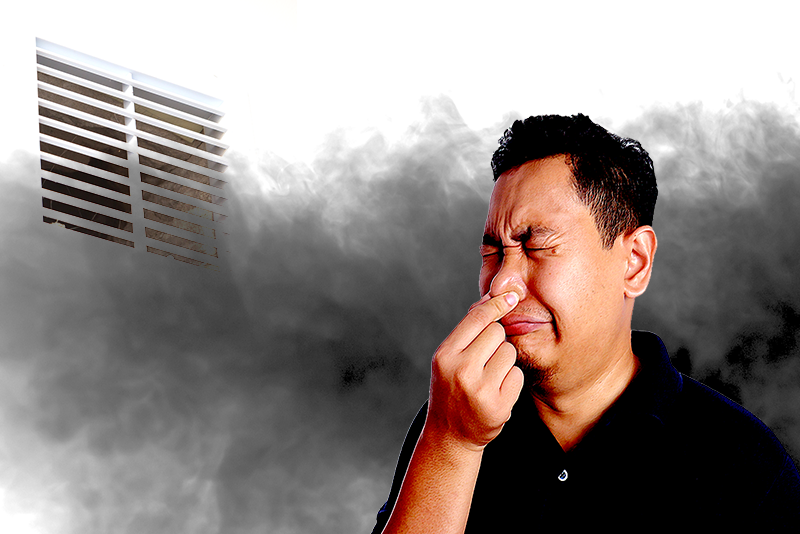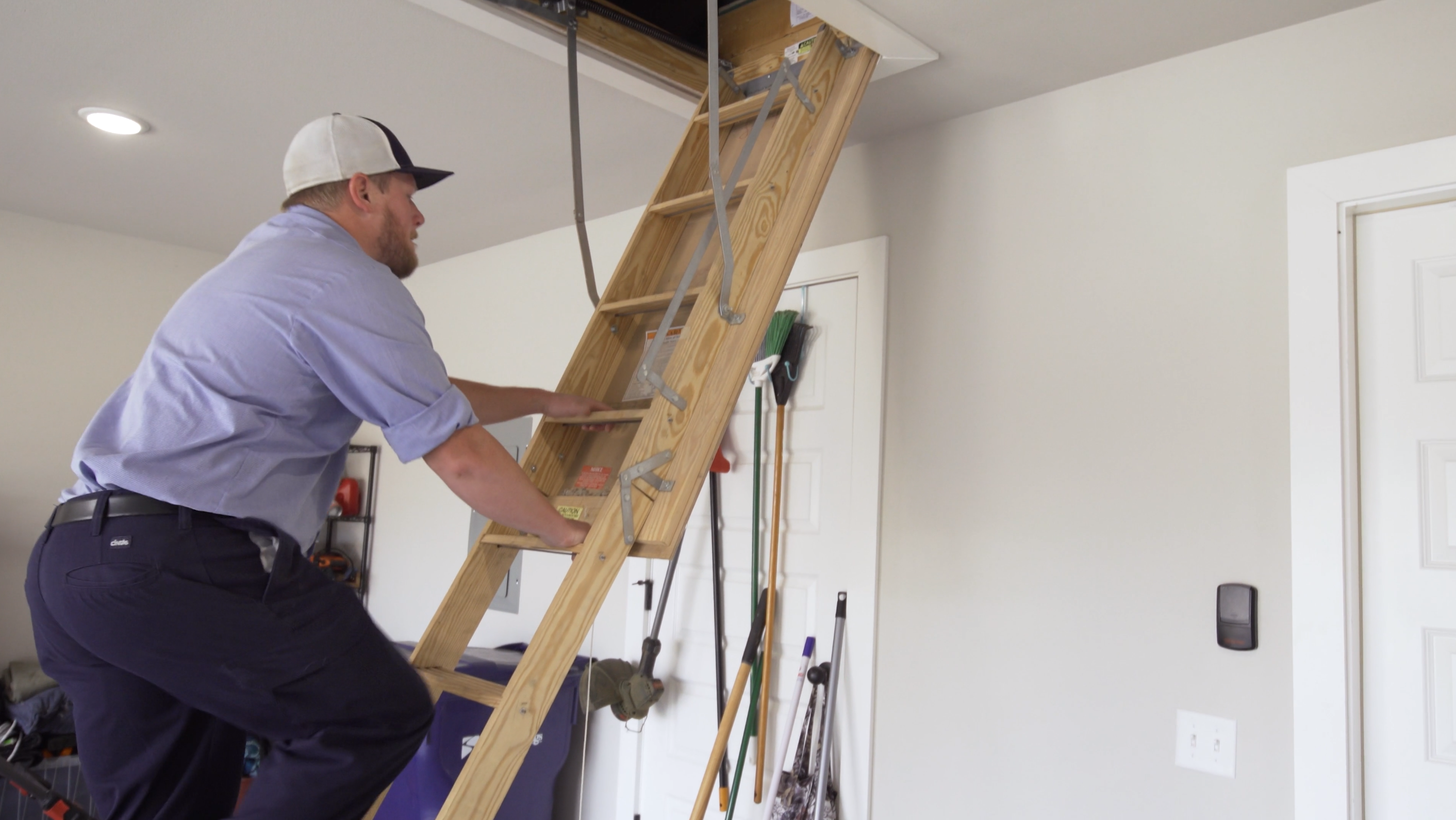Want to save with Paschal? Don’t miss our current offers and specials

Want to save with Paschal? Don’t miss our current offers and specials
Return to Paschal Resource & Education Hub

There are many smells that remind us of winter. For some, it’s the smell of pine trees or a holiday dinner in the oven – for others, it’s that smell you notice when you first turn on the heat for the season. Many Arkansas homeowners become concerned because their heater smells like burning when it’s first turned on, but do you really need to worry? Find out why this odor occurs, if it’s safe, and if you can avoid it.
After months of disuse, new season furnace smells are pretty common, but that doesn’t mean you should shrug your shoulders and assume all is well. Although furnace odors are rarely dangerous, they can be—which means they’re always worth investigating. Downside? Your furnace doesn’t smell so great, and now you have to figure out what’s causing it. Upside? You get to play detective.
Here’s what those common furnace smells mean and what you can do about them.

This is the most common and (thankfully) least worrisome smell. While you’re not using your furnace in the summer months, dust settles everywhere. After that first ignition and first few cycles, the dust will burn off and create that familiar odor. No reason to panic! If it doesn’t stop after a few cycles, try changing or cleaning your filter. Accumulated dust is the most common source of a burning smell from your heater. Whether you operate an electric heater, furnace, or heat pump, a system that has remained dormant can accumulate dust and other particles from the air supply in your home. When the heating system is turned on, these materials burn up, causing that short-lived burning dust smell. While you don’t need to contact the fire department, you should take a look just to be sure that there isn’t another source of the smell. You may notice that as the system completes a heating cycle, the odor fades. If it continues after one or two heating cycles, consider contacting an HVAC technician for help.
Accumulated dust is the most common source of a burning smell from your heater.
First check all your vents and ducts for wayward plastic toys, plastic wrapping, or other debris—especially if you have little ones. You know better than anyone that your kids’ favorite toys end up in the most unlikely places! Checking for the obvious can save you lots of time and worry. In some cases, rubber, plastic, or other materials end up inside of the ductwork via the air vents. If you smell a burning plastic smell or burning rubber smell that is not consistent throughout your house, try to isolate the location. Inspect the air vents in the area that has a strong burning odor to make sure that there isn’t an obstruction. Just make sure you don’t close your vents because this can affect the balance of your HVAC system and reduce its efficiency. If this doesn’t remedy the burning smell, contact an experienced HVAC technician for help.
However, a burning plastic smell can also mean overheating. Capacitors, plastic-coated wires, and fan belts are the usual culprits of that plastic smell. Make sure to turn off the furnace and take care of this one quickly, since burning plastic is toxic.

You’ll experience this if you have an oil furnace. This usually means the oil filter needs cleaning or replacing. It could also be a blocked chimney. Regardless, turn off your unit immediately and inspect the issue further. Oil furnaces often emit smells similar to the smell of smoke or oil. In these types of furnaces, you’ll want to change the oil filter to ensure overheating does not occur. If the smell continues, contact an HVAC professional to diagnose and repair the problem.
Usually if your furnace is overheating, it will automatically shut off. But if there’s something wrong with the blower motor or heat exchanger, this safety feature won’t kick in. These overheated parts create a metallic, electrical, or chemical smell. Some people say this issue causes a smell like formaldehyde. Turn off the furnace and inspect it for damage.
If you’re getting a distinct odor of gunpowder, you probably have a fried circuit board or fan motor. Turn off the furnace and call us for a safety inspection.
Natural gas is odorless, but your gas company adds sulfur to make gas leaks easier to find and correct. So, a rotten egg smell means you’re having an issue with your gas supply. That sulfuric smell is added to gas to alert you. Shut off the furnace immediately and call for service. A professional can diagnose the problem, which may be a cracked part or a failing pilot light or ignitor.

If you turn on your furnace and it smells like a damp basement or moist dirt, there are a couple potential causes. The first thing to check is your air filter and to replace or clean it as needed. Next, check your humidifier filter (if you have one) for mold. Clean with water and vinegar for an easy fix.
If your furnace smell continues, gets worse, or you can’t find the cause, call your local fire department for a safety inspection. When it comes to furnace and fire safety, you’re always better safe than sorry. Then give us a call! We take pride in keeping you and your neighbors safe and comfortable in their homes.